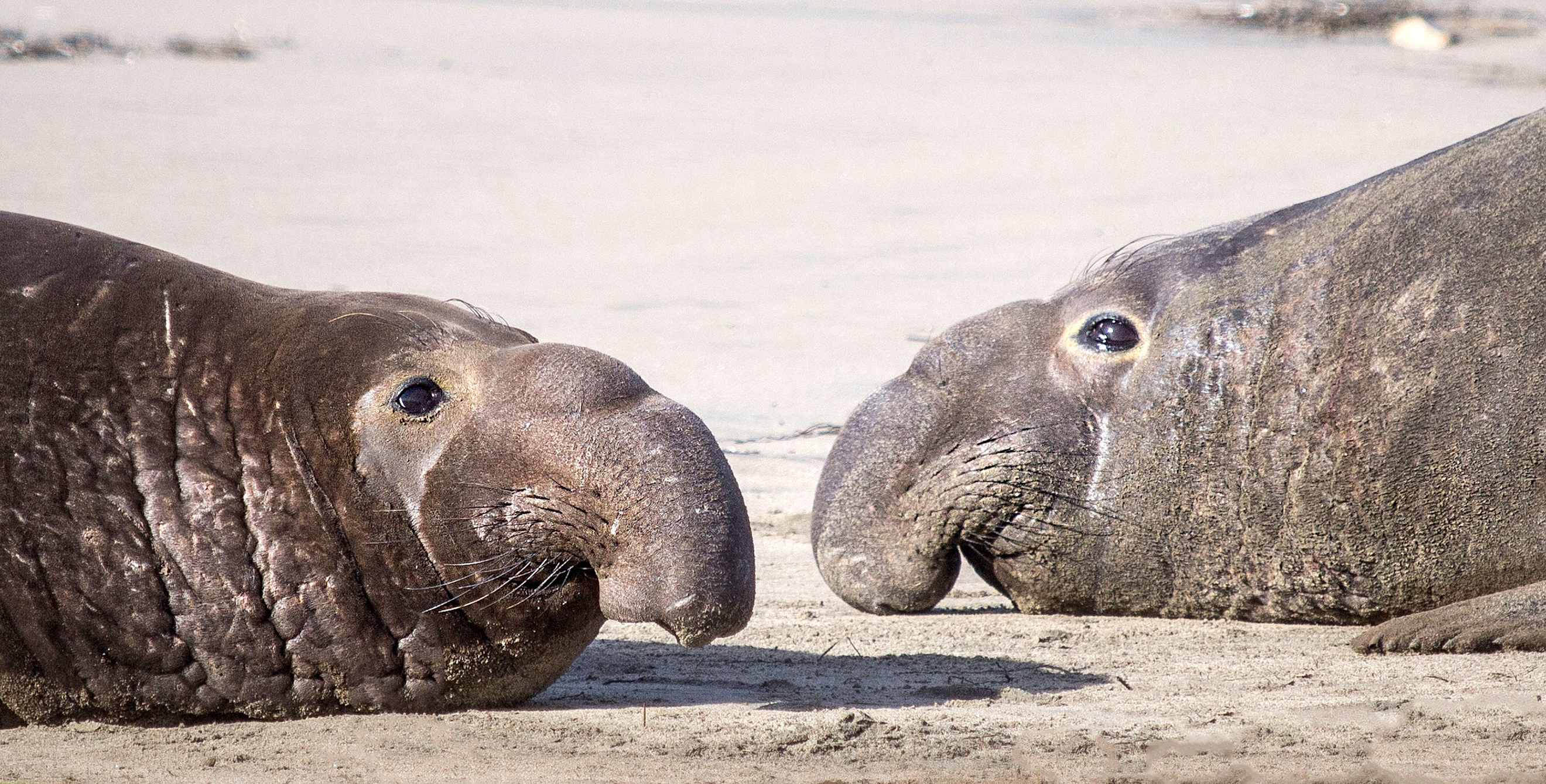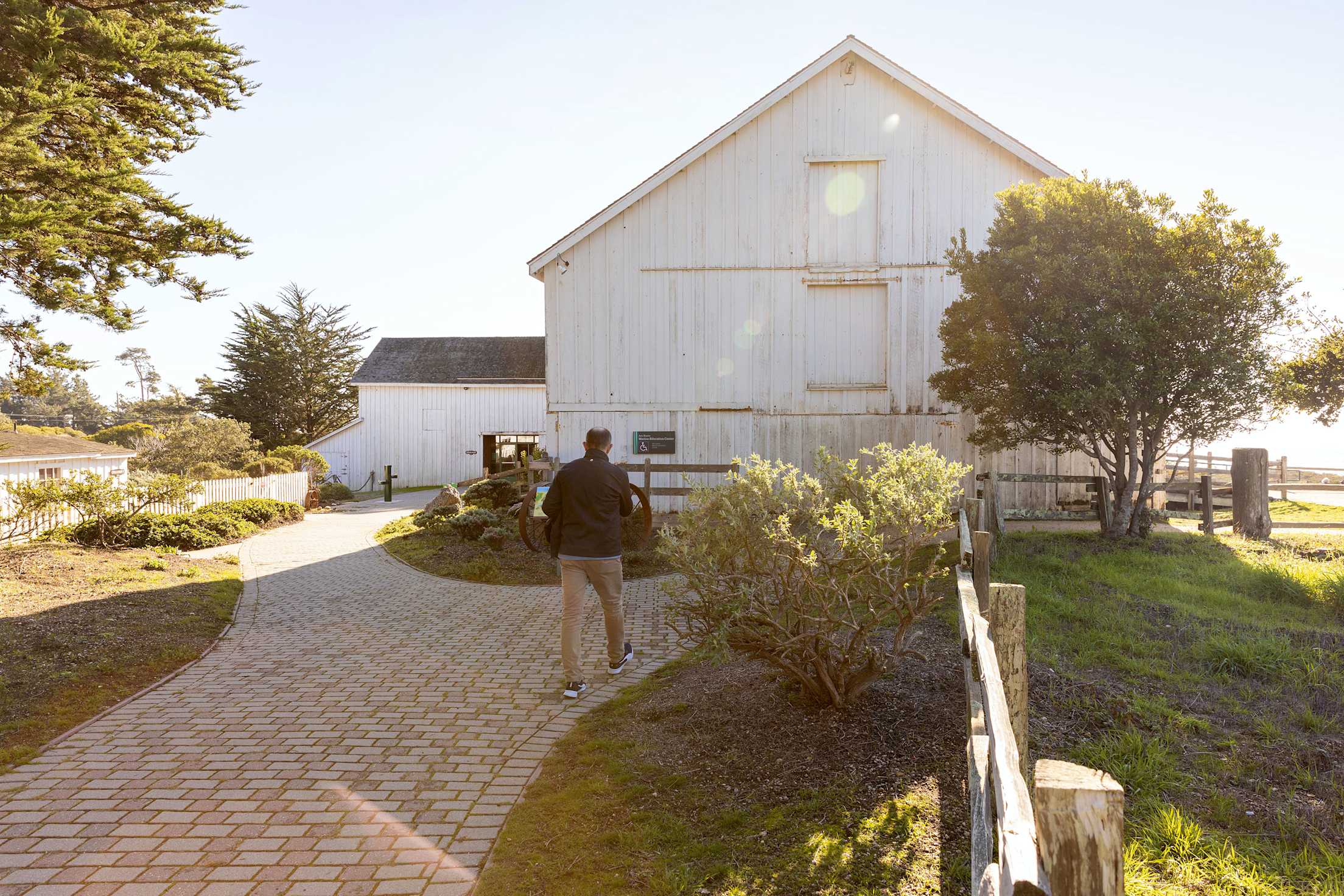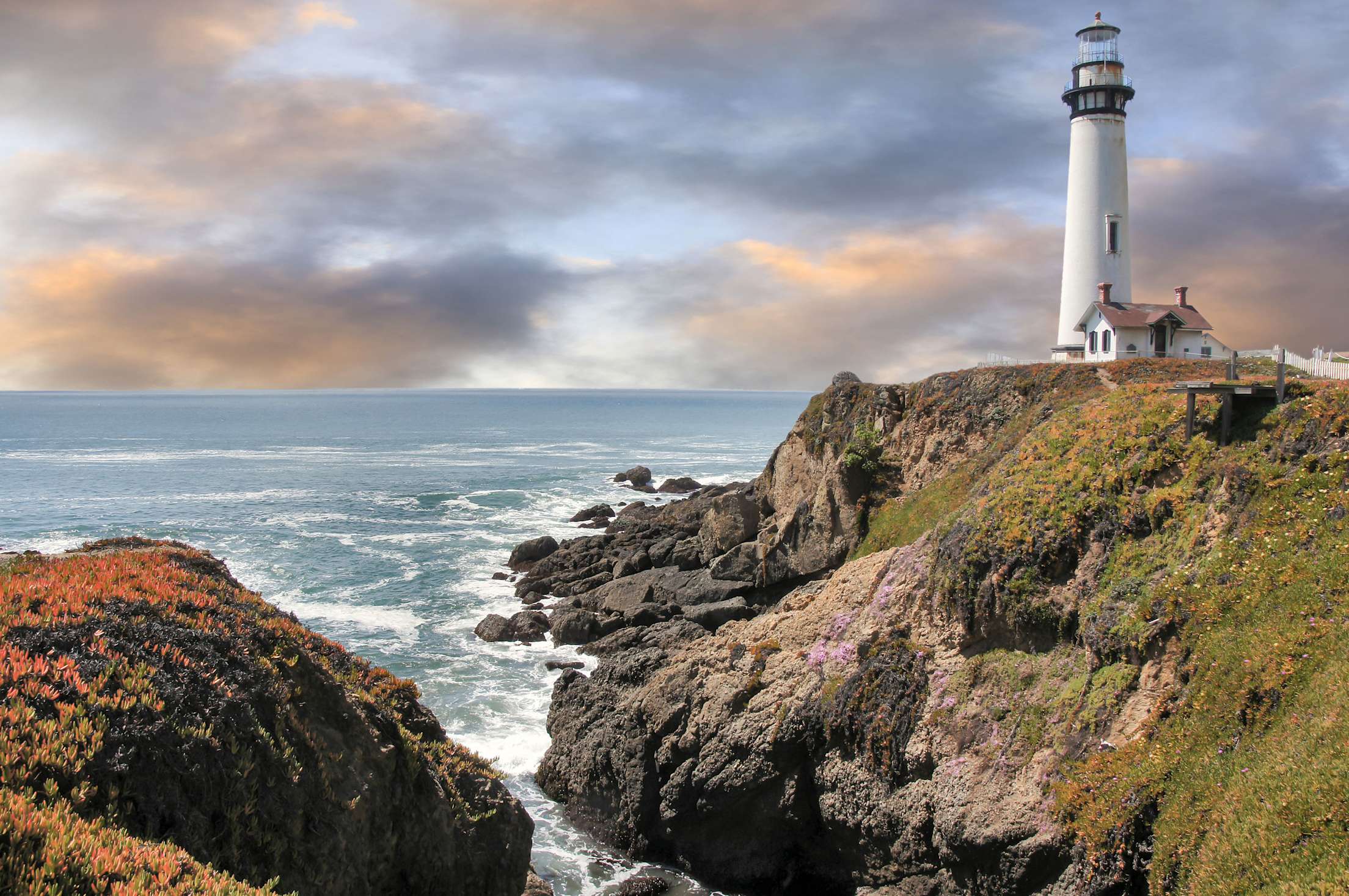
Explore Año Nuevo State Park
Visit elephant seal habitat amid windswept coastal beauty on a guided dune hike.

On a rocky point overlooking the Pacific Ocean, about 55 miles south of San Francisco, Año Nuevo State Park offers miles of sandy beaches and wonderfully windswept hikes. What sets the park apart from other Northern California coastal locations, however, is the large population of northern elephant seals who live on a 4,000-acre protected reserve within the park boundaries. The massive marine creatures are cousins to more common harbor seals and California sea lions, but can reach 14 feet in length and weigh in at upwards of 4,000 pounds. Visiting Año Nuevo in winter affords the best views of these giant sea animals and an opportunity to learn about their special ecosystem.
The park complex, located on a restored historic dairy ranch, features coastal prairie, marshes, and dune fields that are home to abundant wildlife. At both Año Nuevo Point and Año Nuevo Island, just offshore, up to 8,000 of these critters return each year to breed and give birth.
During the winter breeding season, from mid-December through March, the park’s nature preserve is open for reservation-only guided tours to see the new pups. Trained docents lead the three-mile interpretive walks, which touch on the area’s natural history and provide safe and appropriate access to sights of the seals. “It’s a pretty immersive experience,” says Supervising Ranger Stan Kopacz. “When you’re out on the point and you’re listening to the seals vocalizing, you can forget there are highways and everything else not that far away.”
For an Elephant Seal Guided Walk, book well ahead through ReserveCalifornia to snag one of the limited spaces allotted each day. The walks take about 2.5 hours, and visitors should be capable of hiking over varied terrain, including sand dunes. ReserveCalifornia can also be used to book special accessibility tours for visitors needing mobility assistance, and the park can aid in organizing American Sign Language interpretation.
If you’re planning to visit the park from April to November, no reservations are needed. Drop by the visitor center for free day tickets. From April to August, the seals undergo a process called molting, when they shed their fur to grow sleek new coats. From September through November, during what’s known as the juvenile haul-out season, the adults head farther out to sea and leave the yearling seals to hang out on the beach. The park is closed each year for the first two weeks of December.

The seals aren’t the only attraction at Año Nuevo. There’s a network of hiking trails that cross the coastal bluffs, wind through a grove of Monterey pines, and head to miles of beaches to the west. Keep on the lookout for Steller’s sea lions, otters, and seals, and even glimpses of creatures such as the rare, endangered San Francisco garter snake and California red-legged frog. Bird-watchers can spot bald eagles, ospreys, and cormorants on this major migratory route. The pond near Cove Beach—just a short walk from the parking lot popular with surfers—is a wonderful place to hear pelicans splashing in the water.
You’ll also want to plan some time to linger at the on-site Marine Education Center, which tells the story of the Indigenous people who lived on the land for thousands of years and offers a geological and ecological overview of the preserve, as well as details about the marine creatures who live there. The bookstore offers great reading for kids and adults, plus memorabilia such as postcards and apparel. Watch a short video on elephant seals at the historic Horse Barn building next door.

On the way to the park, plan to stop at 150-year-old Pigeon Point Light Station, about seven miles north of the park. Though the lighthouse itself is closed for restoration, you can tour the lovely grounds and visit the fog signal building to see the vintage Fresnel lens and an exhibit on area history, shipwrecks, and the lighthouse restoration project.
Be sure to visit Waddell Beach, three miles south of Año Nuevo, which is renowned for the breezes that call to windsurfers. Just across Highway 1, Rancho del Oso State Park has an excellent Welcome Center, open on weekends, for those who want to learn about the Big Basin fires, the history of the Waddell Valley, and local wildlife.
The Cascade Restaurant & Bar inside the ecofriendly Costanoa Resort & Lodge is three miles north of the park. With warm wood and a stone hearth, this restaurant relies on produce from small farms, including its own, for the California coastal menu. Try the Dungeness crab mac-and-cheese, or go for salad like arugula with lemon and parmesan or kale with warm goat cheese and roasted beets—both feature Costanoa-grown produce.